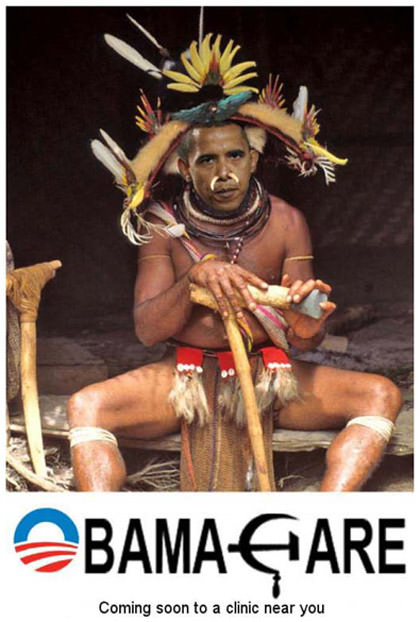The hysteria shown at town hall meetings this summer is simply the tip of an outpouring of organized hostility to government that is unparalleled in our history. We have had wildly emotional opposition movements in the past—red scares, nativist riots, anti-Catholic and anti-Semite outbreaks. And there are some parallels with past forms of extremism. People who think Obama is a Muslim are like anti-New Dealers who thought Roosevelt a Jew or John Birchers who thought Eisenhower a Communist.
But there was a kind of crazy consistency in those old causes (if they can be called that). The institutional Catholic Church was officially anti-democratic in the past, and the United States was falsely thought to be a Christian nation. The John Birch Society was fanatically anti-Communist, but most Americans were at least strongly anti-Communist. There were always emotional roots behind the formal position of the extremists. Richard Hofstadter found status anxiety and anti-intellectualism in the right-wing extremism of the 1950s.
Now, however, there is a deeply panicky combination of pathologies—racist, xenophobic, fundamentalist—screaming about death camps and euthanasia and baby-killers and 9/11 conspiracies (by the “truthers”). Every aspect of our present government is considered illegitimate. Some look at our leaders and recognize nothing of themselves in them. They see a black man as president and cannot even consider him a citizen, a Christian, a sane man—he must be a Muslim, a Nazi, a Hitler. They see a Latina on the Supreme Court. They see a woman as secretary of state. They see a black attorney general. This is not America.
The John Birch Society was at least focused on communism. The new emotions raging have no focus, just an infection and mutual reinforcement of nameless fears. This is less the pushing of a political position too far than a multiple-sourced and violent nervous breakdown, a St. Vitus dance from the Middle Ages. Bircher “extremism” was mild compared to these anguished roilings. People feel betrayed, robbed of their country. The waving of the Constitution at the town halls had nothing to do with constitutional arguments. It was a way of saying, “Give us back what we thought our country was all about.” Extremism is normally a protest against what is seen as rapid change. But the changes these frightened people think they see are not rapid, they are monstrous.
How serious is this new hysteria? It is hard to say. It is normally remarked that only “the fringes” hold beliefs like the birther-deather nonsense. That is probably true. But the willingness of others to entertain these fantasies—in a recent survey, 42 percent of Republicans said that Obama was born outside the US— is also a new thing. There is nothing opponents can do about most of this. In the past, extremism was checked by people who were partly or nominally on the side of the extremists. Barry Goldwater dissociated his 1964 campaign from the John Birch Society. William F. Buckley rebuked the anti-Semites on the right. On the other side, there were plenty of liberals who denounced the Weather Underground or the Black Panthers.
But now supposedly responsible Republican leaders, commentators, and congressmen—Iowa Senator Charles Grassley and Arizona Representative Trent Franks—encourage the citizenship and euthanasia screamers. A recent vice-presidential nominee endorses the death panels myth. There is little or no determination to dissociate the right in general from the right-wing fringes. Why is this? Partly, I suppose, the Republican Party has shrunk so drastically that it feels it cannot cut away any supporters. This is the opposite of what was said about the banks, that they were too big to be allowed to fail. The birthers are too small to be allowed to fail. Everyone must be kept in the camp if there is to be a camp at all.
This situation cannot be reversed until and unless the Republican Party begins to recognize that keeping these people in the camp will destroy the camp, that the party cannot pretend to respect and responsibility before the electorate so long as they coddle the crazies. Barry Goldwater was considered an extremist in his day, but his movement went on to prevail for a time because he did not temporize with Birchers, anti-Semites, or religious fanatics.
William F. Buckley became an influential supporter of Richard Nixon and Ronald Reagan because he was willing to free his movement from fringes like the John Birch Society, the anti-Semitic Liberty Lobby, the Ayn Rand objectivists, the anti-fluoride kooks, and other exotic specimens. That is the price of full participation in our national politics. It is a price the current Republican Party is unwilling to pay.


